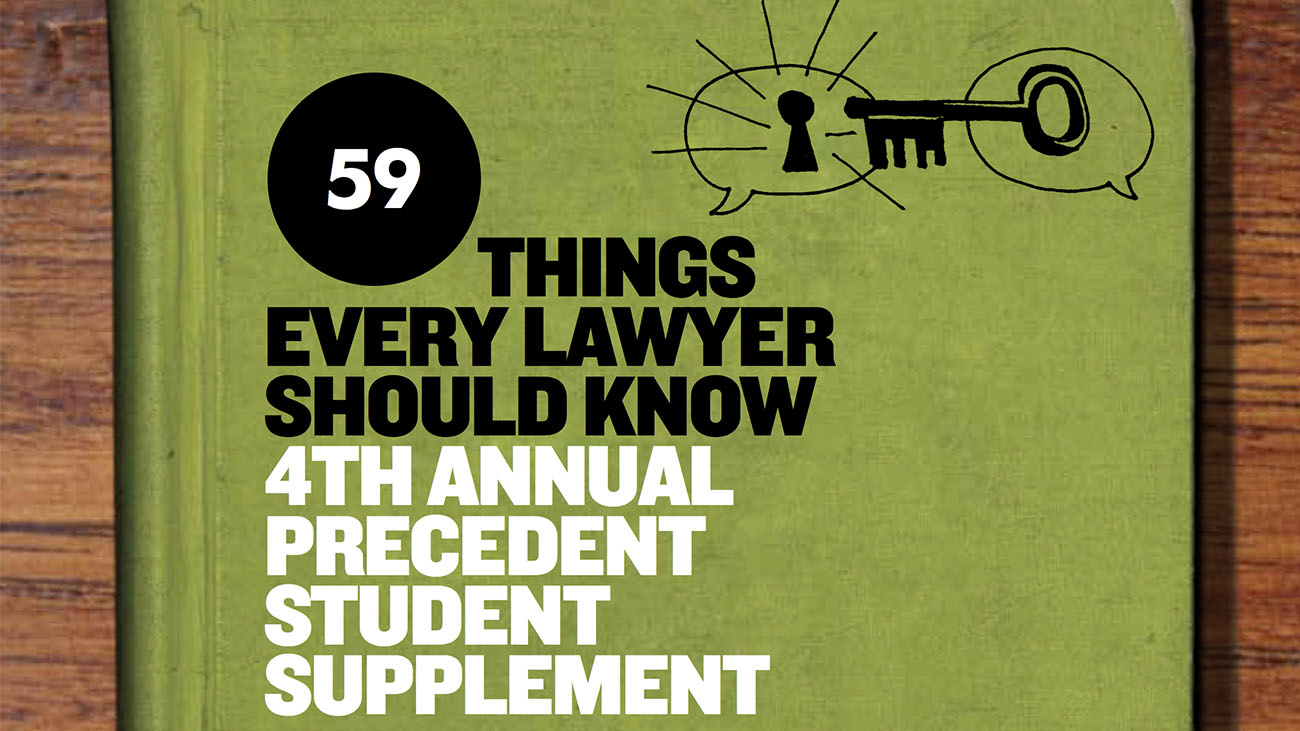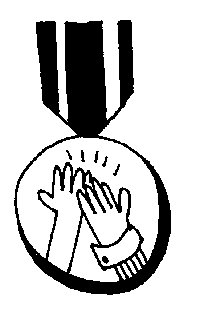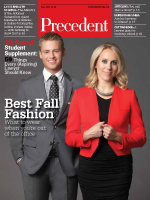
Navigating your way around the legal world is a tricky business, so we’ve done it for you. Read the essential questions to ask (and never ask) in interviews. Learn how to enhance your digital self, get to the courtroom in a jiffy and analyze the statistics to find out what separates one big firm from another
 1-3. Ace the interview
1-3. Ace the interview
1. Three questions you should always ask:
- “What is the partnership structure and what’s the path? How many years does it usually take?”
- “How much responsibility will I get on a file?”
- “How is the work distributed?”
2. Three questions you should NEVER ask:
- “How much will I be making?” (Most starting salaries are public, so it means you haven’t done your research.)
- “What are some of the perks?” (It’s tacky.)
- “Are there opportunities to go on secondment or in-house after a few years?” (Firms are thinking long-term; you should appear to be, too.)
3. Three questions you shouldn’t ask but always get the answers to:
- “Will I actually get to take my vacation?”
- “When it comes to bonuses, what is the typical range?”
- “What is your maternity/paternity leave policy?”
4. Don’t believe the NALP
The NALP Canadian Directory of Legal Employers (nalpcanada.com) is useful for hunting down all the law firms that are recruiting — but that’s about it. The data is voluntary information submitted by each firm. Precedent looked at the numbers and found the firms are inconsistent in how they report on everything from office size to the gender breakdown of equity partners. So if you want to know how many women are at the top, add it to your list of questions to ask — just not in the interview.
5. Get hired back
Precedent has been tracking the big firms’ hireback rates for articling students for three years now, and the numbers tell an interesting story. Want to get on Bay Street and stay there? Check out these numbers before you start passing out resumes.
| FIRM |
2011 |
2010 |
| Osler i | 100% | 100% |
| Faskens ii | 100% | 81% |
| Davies | 92% | 67% |
| Gowlings | 88% | 80% |
| Blakes | 87% | 90% |
| Torys | 86% | 94% |
| Ogilvy Renault | 83% | 69% |
| Stikeman Elliott | 81% | 68% |
| Goodmans | 80% | 75% |
| Dept. of Justice iii | 76% | 100% |
| Cassels Brock | 71% | 63% |
| FMC | 70% | 54% |
| BLG | 68% | 68% |
| McCarthys | 65% | 67% |
| Heenan Blaikie iv | 63% | 100% |
| McMillan v | 55% | 67% |
| Bennett Jones | 50% | 61% |
Notes:
- i) Osler was long the place to be because the firm offered guaranteed hirebacks to all of its articling students, but that’s changing this year.
- ii) Faskens’ numbers on the other hand? No guaranteed hirebacks. They just know how to pick ’em.
- iii) The hireback rate at the Department of Justice went down because they hired more articling students in 2011 than in the previous year, but hired back the same number of associates. So it’s easier to get in with the DOJ than before, but harder to stay.
- iv) About Heenan Blaikie’s apparent 2011 decline: It’s all about the numbers. The firm hired 16 students in both years, with 11 hirebacks in 2010 and 10 in 2011. But in 2010, five articling students opted out (three to clerk) which sent Heenan Blaikie’s hireback rate into the stratosphere that year.
- v) Even though McMillan’s hireback rate is low, remember the firm absorbed Lang Michener at the beginning of the year — and all of LM’s articling students. The new McMillan expects its numbers to bounce back next year.
 6. Mind Your Digital Self
6. Mind Your Digital Self
Gunning for partner or planning to go into politics someday? That topless Mardi Gras photo that your “friend” posted on Facebook could be a problem. Ditto for that university blog post that advocates the overthrow of the global capitalist order. Here’s how to keep your digital self in check
“If you put it online, you’re putting it out in the world for everyone,” says Ryan Merkley, Mozilla Foundation’s chief operating officer. “There’s really no online versus real-life profile — there’s just your identity.”
That doesn’t mean lawyers should avoid social networking. A healthy web presence on LinkedIn, Twitter or a blog can help promote you and attract clients. “Having an online persona as a young lawyer is important,” says Melissa Ghislanzoni, an associate at Miller Thomson who has over 500 LinkedIn connections and a shop on Etsy to sell her photographs for charity. “It builds your credibility and distinguishes you from other lawyers.”
Just use common sense. Facebook is the ultimate minefield. Keep privacy settings “super high,” recommends Leigh-Ann McGowan, assistant director of professional development and student programs at Cassels Brock & Blackwell LLP. And be careful who you friend. It’s OK to add colleagues at your firm — or even clients — as friends, but adjust your privacy settings to keep colleagues separate from buddies by limiting their access to your activity and info — especially if you’re looking for a job.
As for the other junk that’s floating around in virtual space, there are services that claim to be able to scrub your online profile, but Merkley is skeptical about their effectiveness. Instead, he suggests generating a steady stream of good content attached to your name — through LinkedIn, a blog, perhaps Twitter — to attract more search engine attention. “You can outnumber the bad content with positive content.”
The rule: if what you’re doing in your personal life is really at odds with your professional life, don’t do it online.
7-15. Get there — fast
Sure, you’re a well-educated, well-paid young professional, but there are times when you’re going to have to play courier. It will be on you to pick up documents, swear affidavits or meet a client, pronto. Whether your trip is across town or around the world, follow our chart to get there at warp speed

Web exclusive: Tips for getting around fast
Dropping off a legal document in a pinch just got easier thanks to this list of top apps, tips and frequent flyer perks Ontario lawyers need to know about
WALK: Plan your route at MapMyWalk.com and track your progress with the Pedometer app ($0.99).BIXI: Go online https://toronto.bixi.com/ to find the closest station. An annual membership is $95, or buy a 24-hour pass for $5 at the station using a credit card.
CAB: Nerd alert: The TaxiNow app lets you see the nearest taxi, book it, and then track it as it drives toward you. PEARSON
INTERNATIONAL AIRPORT: Hot tip: Air Canada and WestJet passengers can purchase one-time access to their airline’s airport lounges for a small fee (usually $25 to $50).
BILLY BISHOP AIRPORT: Sign up for VIPorter Frequent Flyer club to earn free air time and local perks like a trial membership to the Spoke Club.
PRIVATE JET: Just in case your bonus is ginormous, here’s the number to call: NovaJet, 1-866-536-0413
RENT A CAR: Ask your firm to sign up for sustainable car-sharing over car rental. Corporate memberships are available for Zipcar and Autoshare.
OWN YOUR OWN CAR: Running on empty? Gas Buddy points you to the nearest station.

This story is from the 2011 edition of PrecedentJD Magazine
Illustrations by Ben Weeks
